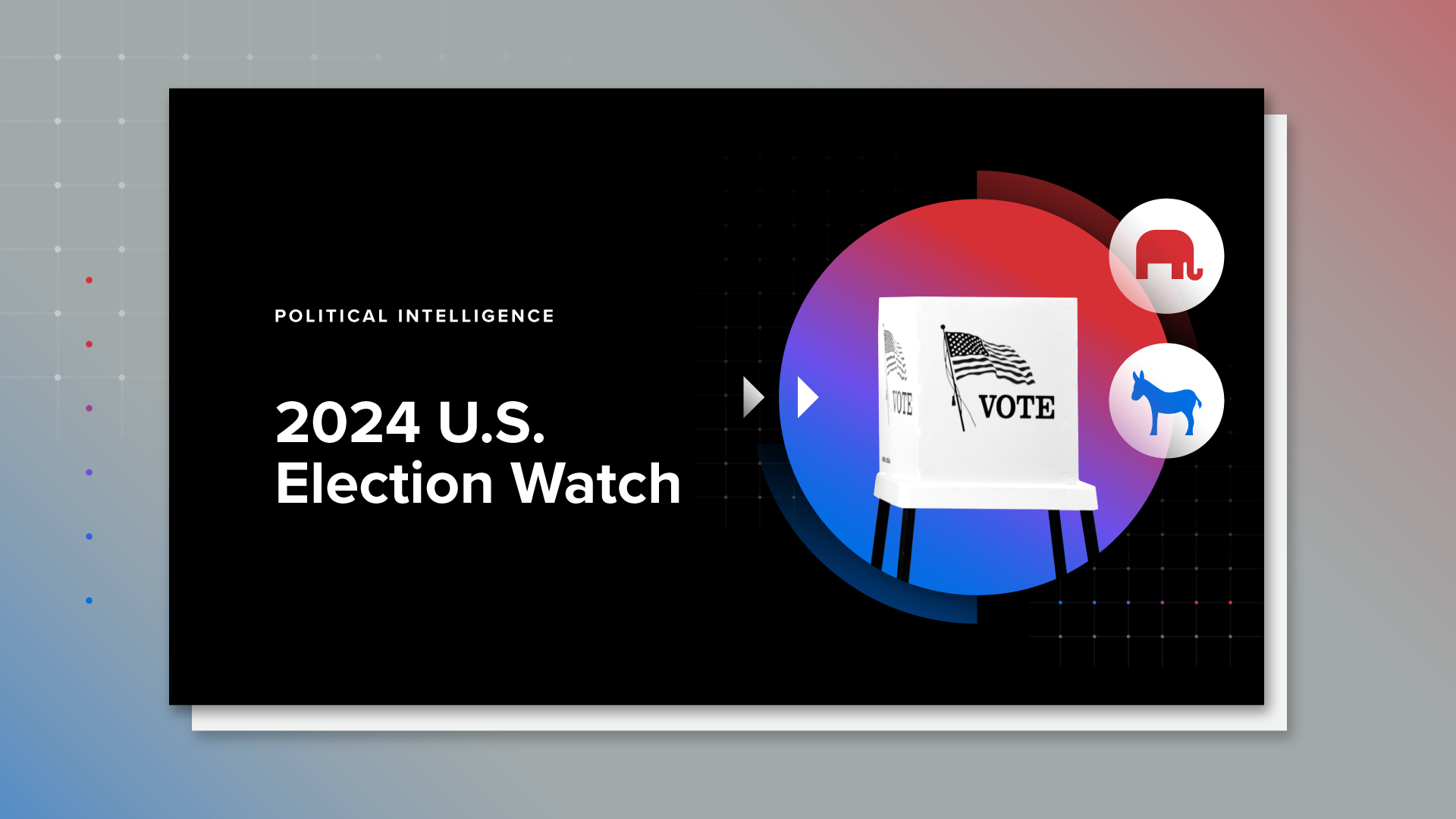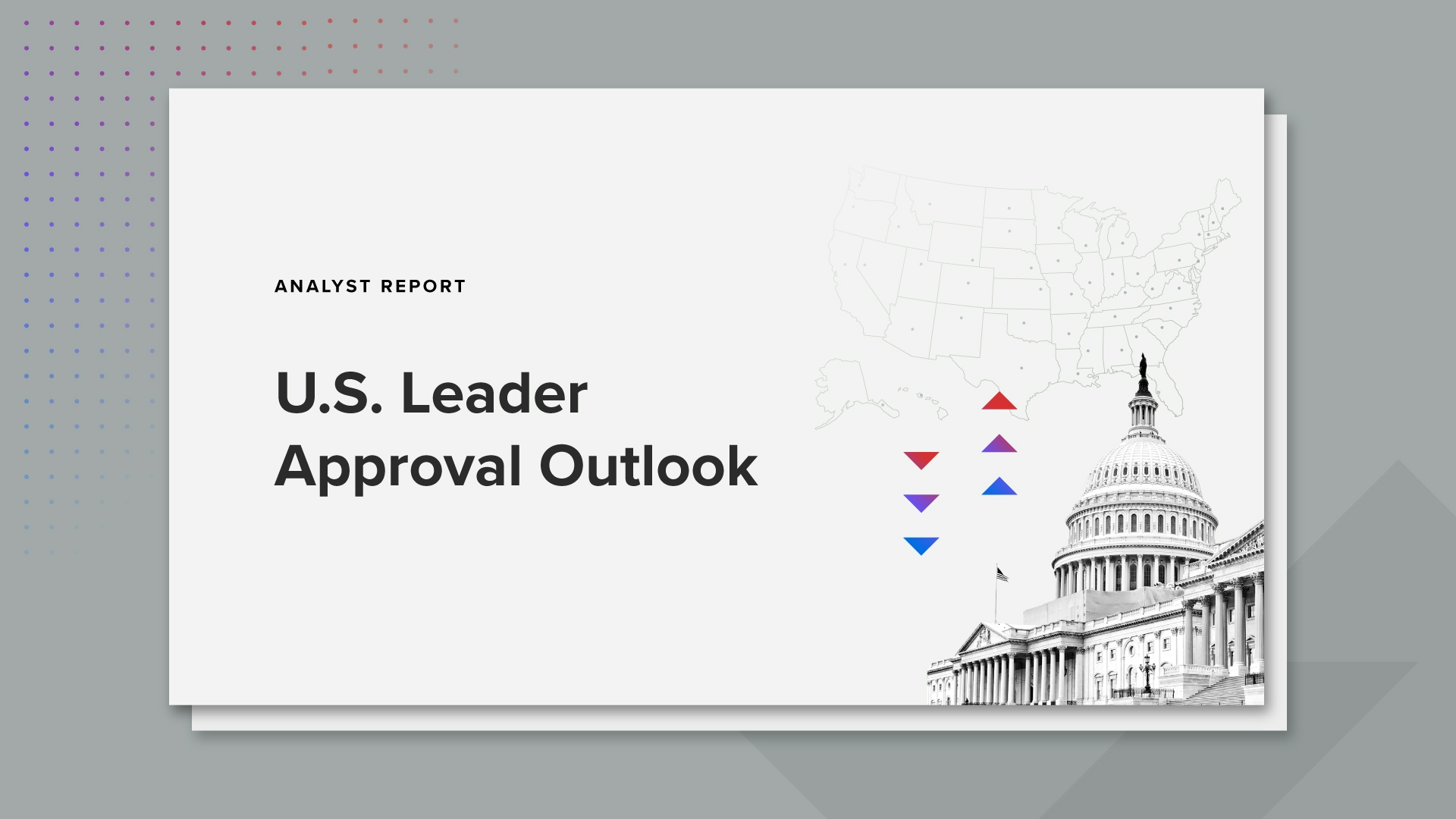
U.S. Politics
2024 U.S. Election Watch Report | November 2023
Report summary
The 2024 U.S. elections are shaping up to be another monumental moment in America’s modern history, and Morning Consult’s high-frequency tracking capabilities will provide political observers with an essential source of public opinion data to help them keep a finger on the pulse of the nation.
On a daily and weekly basis, Morning Consult Political Intelligence surveys thousands of registered U.S. voters on how they view their politicians at the national and state level and whom they currently plan to vote for. We also track the issues voters consider most important when making their decisions at the ballot box, whom they trust most to handle those issues and the extent to which media coverage of those issues is reaching them.
Each month, the 2024 U.S. Election Watch report will provide a comprehensive look at what the U.S. electorate thinks about the major issues and personalities around next year’s contests, including the prospective general election matchup between President Joe Biden and former President Donald Trump, and how potential shifts in issue importance may favor either party next November.
Key Takeaways
- Trump is gaining ground among key voter segments including Black, Hispanic and young Americans: Throughout 2023, Donald Trump has made up ground with President Joe Biden in our head-to-head tracking by improving his margins among independents, the youngest voters, and Black and Hispanic Americans.
- How the issues these voters care about diverge from those of the general electorate: According to our tracking, independents and the general electorate prioritize similar issues ahead of next year’s election. But some issues hold particular importance for the other groups mentioned above. For example, Black Americans are more likely than the broader electorate to view the Jan. 6 Capitol attack as “very important” when considering their vote next year. LGBTQ+ rights are also more important to this group, as well as to Hispanic voters and 18- to 34-year-olds.
- Coverage of these voters’ pet issues isn't breaking through to them: But ahead of next year’s elections, most of these voters say they’re not hearing much about the issues that are uniquely important to them. Instead, they are overwhelmingly hearing about the economy and international conflicts such as the wars between Russia and Ukraine and Israel and Hamas. As for those who are hearing about the issues they especially care about, the information reaching them is more likely to be negative than positive.
- Biden has work to do: If the president hopes to bring these voters back into the fold and improve his chances for re-election in 2024, centering the issues that are uniquely important to them will be critical.
Methodology
All national-level data presented in this report reflects monthly roll-ups of views among registered voters derived from two sources: (1) interviews from Morning Consult’s daily U.S. tracking survey and (2) weekly interviews from a nationally representative survey on the 2024 U.S. elections and the Republican presidential primary. Data on approval ratings for President Joe Biden derives from the former source; all other data presented in this report derives from the latter source.
All state-level data represents trailing three-month averages of monthly roll-ups derived from Morning Consult’s daily U.S. tracking survey.
Consult our 2024 Republican Primary Methodology primer for additional details on both data sources, including sampling and data collection procedures, weighting and representativeness, margins of error and question wording.
About the author
Cameron Easley is Morning Consult’s head of political and economic analysis. He has led Morning Consult's coverage of politics and elections since 2016, and his work has appeared in The New York Times, The Wall Street Journal, The Washington Post, Politico, Axios, FiveThirtyEight and on Fox News, CNN and MSNBC. Cameron joined Morning Consult from Roll Call, where he was managing editor. He graduated from the University of North Carolina at Chapel Hill. Follow him on Twitter @cameron_easley. Interested in connecting with Cameron to discuss his analysis or for a media engagement or speaking opportunity? Email [email protected].


